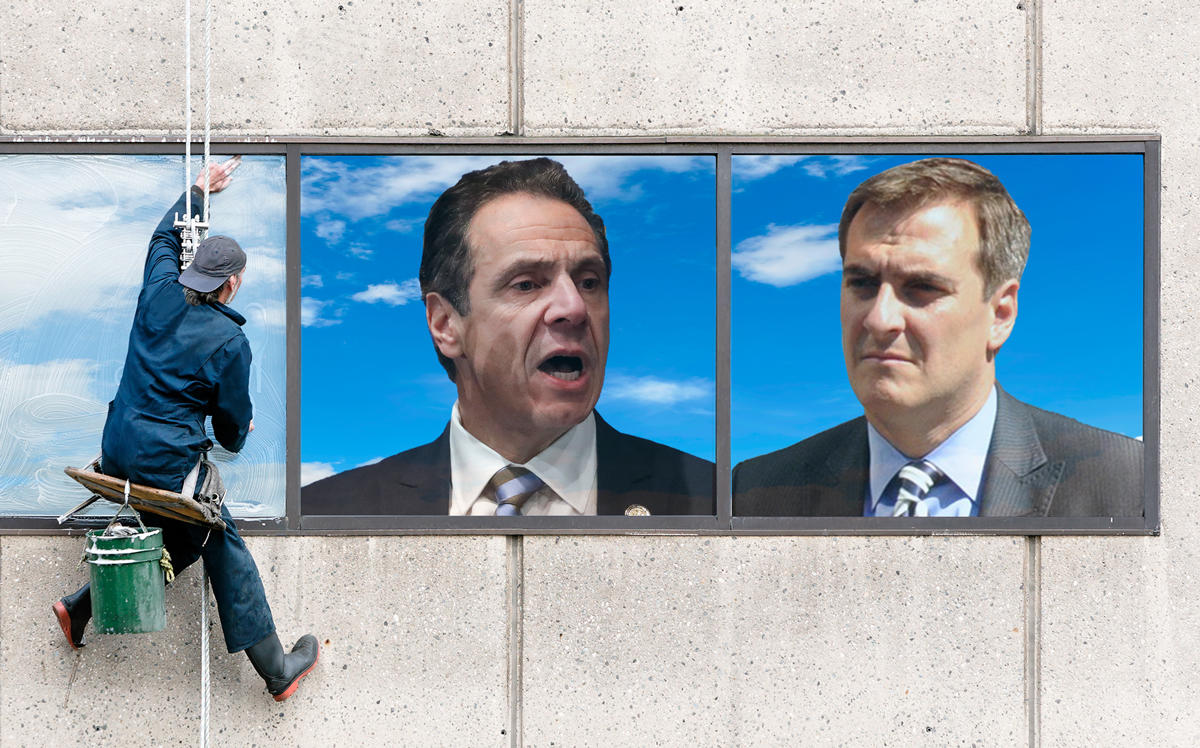Trending
New York landlords rush rent hikes ahead of housing reforms
Property owners advised to get Major Capital Improvement increases while they still can

For Iván Contreras, it’s normal to hear complaints about sudden rent increases from his neighbors; usually a couple of new people each month will reach out. But so far in January, Contreras, a housing organizer in Queens with community group Woodside on the Move, said it’s closer to a couple per day, all coming to him with notices from the state that their landlords performed “Major Capital Improvements,” or MCIs, and now want to increase their rent.
“I’m seeing in the last couple of weeks more and more people coming with applications,” he said. “Landlords are feeling that something is going to happen with the MCI.”
MCIs are among the few legal ways building owners can make more money on rent-stabilized buildings than what state laws typically allow (last year, annual rent increases were nominally capped at 1.5 percent by the city’s Rent Guidelines Board). Landlords get extra rent increases of up to six percent of current rents per year, however, by making improvements that affect the entire building, such as replacing all the windows or installing a new boiler. In some cases, the charges can end up higher than six percent as time goes by.
But political changes in Albany, where Democrats now have a majority in both chambers of the legislature for the first time in a decade, have led both tenant and landlord groups to expect that MCI increases could soon be history.
Several new and re-elected senators made eliminating MCIs key parts of their housing agenda, which includes reauthorizing New York rent laws before the end of June. And Gov. Andrew Cuomo announced in his Tuesday State of State address that he would at least seek to “limit” the increases.
Now landlords are scrambling to get rent applications filed with the state housing regulator before it’s too late, both activist and real estate sources told The Real Deal.
“We’re swamped,” said David Shurin, a real estate consultant who specializes in MCI applications. “They sort of want to get it in before the law changes.”
Martin Heistein, a lawyer who heads the MCI practice at landlord firm Belkin Burden Wenig & Goldman, said he had three clients call him last week seeking advice about what to do. Typically, a building owner performs several improvements over the course of a year or two, and packages them all into a single rent increase application at the end, Heistein said. That cuts down on legal fees and allows the landlord to only worry about tracking a single application with the state. But given the likely reforms, business as usual is no longer viable.
“My advice is whatever is completed, I would file the application now for items done… whatever has been completed,” he said. “File it now, get the docket number. Hopefully you’ll get the order before the end of June.”
Frank Ricci, lobbyist for landlord group the Rent Stabilization Association, had the same advice. “Our members are very concerned about [Cuomo’s] proposals,” he said, “I’d tell them they need to complete the job as quickly as possible, and hopefully get their application in before the laws change.”
The availability of MCI increases, and other mechanisms targeted by Democrats for elimination, such as vacancy bonuses and Individual Apartment Improvements (IAIs), have long been a part of the calculus for pricing multifamily buildings in the investment market. If MCI and other increases are no longer available, rent-stabilized buildings may lose value.
“Landlords are absolutely scared that the opportunity is going to go away,” said Cea Weaver, a campaign coordinator for the Upstate Downstate Housing Alliance. Weaver is working with tenants in Prospect-Lefferts Gardens at buildings owned by Treetop Development, a landlord that bought them just two years ago for $25 million. Recently, Treetop filed MCI applications and put the buildings back on the market for sale, advertising them with “pending” rent increases that would increase the total monthly rent roll by $16,271. Treetop now wants $34 million for the buildings, which include 103 rent-stabilized apartments.
Industry groups and investors argue that without the MCI increases, buildings will fall into terrible states of disrepair, as maintenance becomes disincentivized. “When I have a boiler that needs to be replaced,” said landlord Robert Nelson of Nelson Management, “am I going to resort to dental floss to keep it running?”
Lawmakers, such as Deputy Majority Leader Mike Gianaris of Queens, seek to cut the increases on New York’s largest pool of affordable housing, arguing that building upkeep should be performed as a matter of course. “Landlords are expected to make improvements on the buildings that are fundamentally their assets, at the end of the day,” Gianaris told The Real Deal in December. “We shouldn’t have to pass those costs along to the tenants.”
Under current laws, tenants have some tools at their disposal to protest the MCI increases, or at least delay them for long periods of time. The Division of Homes and Community Renewal, the regulatory agency overseeing the matter, has a process for tenants to appeal, sometimes taking years to make final decisions. This process is especially key for tenants who believe the MCIs have been fraudulently claimed, or that the work performed was done poorly, or paid for at an exaggerated cost.
“They put these new windows in. The buildings didn’t need new windows,” said Vaughn Armour, president of the tenants association at the Treetop buildings in Brooklyn. “They put the cheapest ones in. The windows are paper thin.” The tenant association led by Vaughn, who said the buildings’ elevators are currently out of order, plans to appeal the rent increases. Treetop’s Adam Mermelstein did not respond to requests for comment.
Jon Lilienthal, a paralegal at Collins Dobkin & Miller, said that since the calendar turned to January he’s received more decisions on MCI appeals than is typical, most of them years old and one of which was nearly a decade old. “The only thing I’m attributing it to is some attorneys [may be] saying ‘try to get these matters settled now,’” he said.
A spokesperson for DHCR said it has not expedited its appeal decision process, but did not respond to a follow up question about whether the agency is seeing an influx in new applications.
Cuomo’s proposed 2019 budget would require DHCR to release the number outstanding MCI applications by March of this year. That would give the public a better understanding of how many rent increases could be affected by changes to the laws.
Lilienthal said the appeal decisions he’s received have been varied. In some cases the tenants have been able to get some reduction in the level of increase requested. Contreras, meanwhile said that of the roughly 100 IAI increases he’s tried to help tenants fight, he’s only ever successfully countered two of them. “The MCI is basically a done deal for the landlord,” he said.




